TEAM
LEADERSHIP
20 Proven Tools for Success
Volume 3 of The Parker Team Series
Effective leadership is effective leadership. Some universal truths cut across all types of teams Effective leaders have a clear vision and are able to communicate that vision They develop a sense of urgency about the teams work, involve team members in goal-setting and decision-making, and foster a climate of openness and honesty. People want to work with them
Glenn Parker
GLENN PARKER
HRD Press, Inc.AmherstMassachusetts
Copyright 2009, Glenn Parker
All rights reserved. No part of this publication may be reproduced or transmitted in any form or by any means, electronic or mechanical, including photocopying, recording, or by information storage and retrieval system, without written permission from the publisher.
Published by: | HRD Press, Inc.
22 Amherst Road
Amherst, MA 01002
1-800-822-2801 (U.S. and Canada)
413-253-3488
413-253-3490 (fax)
www.hrdpress.com |
ISBN 978-1-59996-182-8
Editorial Services: Robert W. Carkhuff
Production Services: Jean S. Miller
Cover Design: Eileen Klockars
NEEDED: | SOLID TECHNICAL EXPERTISE |
I n an era when life, especially life in the world of organizations, was much simpler, it was believed that a good leader could lead any type of team doing any kind of work. A leader, it was thought, was a leader, and those skills were transferable to any setting. However, we now know that while generic leadership skills may be applicable, leading most of todays teams requires a solid foundation in the technical, scientific or business aspects of the teams work. Simply being a good facilitator is just not sufficient.
As a senior manager at one major corporation said to me, you have to be more than a facilitator because pure facilitators dont have the knowledge base to make the tough calls. Solid technical skills help establish the credibility of the leader and, in turn, the credibility of the team. At the forming stage, when team members are looking to the leader for direction, it is important that members believe that you know enough about the problem to deal with all the technical or scientific issues that the team may face in the course of the project.
A big part of your job, as we shall see, is interacting with senior management, line managers, vendors and, in some cases, government regulatory bodies. In your meetings and other communications with these stakeholders you must project a grasp of the issues that gives them the confidence that you know what youre doing. Stakeholders are typically investing a great deal in the team and they want to know that the team leader has a handle on the issue.
Whats a working knowledge?
Jeff Stern (not his real name) is a really smart person. He is an MD, holds a Ph.D. in bio-chemistry and has done postdoctoral studies in oncology. He is a senior scientist with New Century Pharmaceuticals. He is also a Project Team Leader for a team that is developing an important new compound that is expected to break new ground in the treatment of lymphoma.
Jeff is so smart that he also knows what he doesnt know. He knows that he is not an expert in a variety of topics that are critical to the success of the team. He knows something about product marketing but he is no expert. He was on another team that filed a new drug application with the Food and Drug Administration (FDA), but he lacks detailed knowledge of many important FDA regulations. He has done many clinical studies but he would not consider himself a highly skilled bio-statistician.
However, he knows enough, as he puts, to ask the right questions and to sense when something doesnt look right, feel right or smell right. He can communicate effectively with all the experts but he could not do their work. Jeff has what we call a working knowledge of all of the issues faced by the team. And thats more than enough.
Never become so much of an expert that you stop gaining expertise. View life as a continuous learning experience.
Dennis Waitley
Works and Plays Well with Others
As we said, the effective team leader must have working knowledge of the technical, scientific and business issues facing the team. However, although an understanding of the technical issues is necessary, it is not sufficient. The successful team leader is a two-headed monster. On the one hand, you must be able to speak with authority about the subject matter, but you must also be able to facilitate the interpersonal and group dynamics of the teamwhat I have elsewhere called positive process leadership.
The successful team leader must be able to:
Ask questions that bring out a wide range of ideas.
Use solid, active listening techniques to ensure effective communication.
Manage group discussions to get everyone involved.
Help the group make decisions using the most appropriate method.
Involve team members in setting team goals and developing a project plan.
Plan and facilitate an effective meeting.
Deal with dysfunctional team member behavior.
Help the team celebrate team successes.
Recognize and reward team members who do outstanding work.
The key to successful leadership today is influence, not authority.
Ken Blanchard
POSITIVE PROCESS LEADERSHIP: | A SELF-ASSESSMENT |
Directions: Please read each statement and indicate the extent to which you consistently behave in this manner by placing a check ( ) in the appropriate box. Use the following scale:
) in the appropriate box. Use the following scale:
1. Almost never
2. Rarely
3. Sometimes
4. Frequently
5. Almost always
Next page
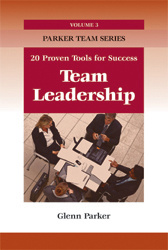
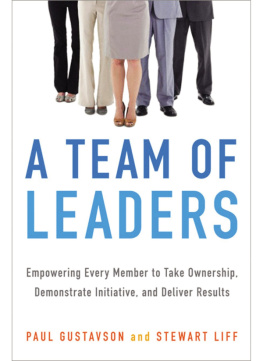
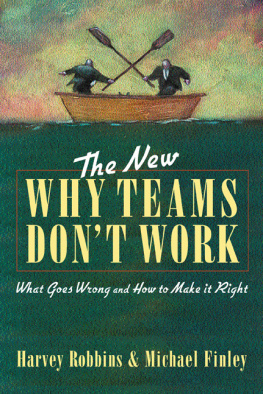
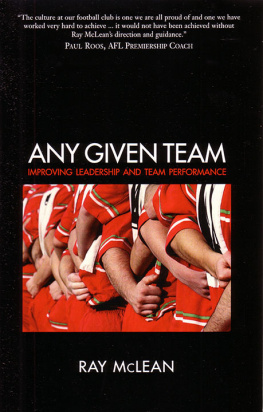
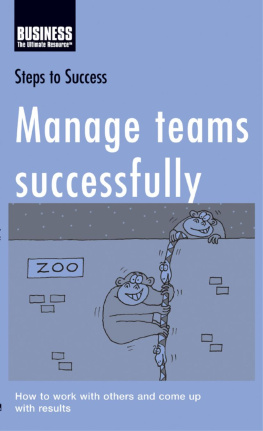




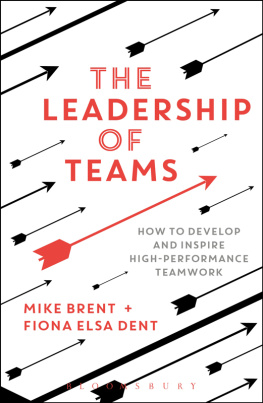
 ) in the appropriate box. Use the following scale:
) in the appropriate box. Use the following scale: